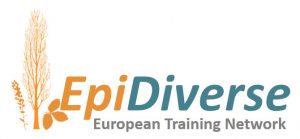Collaborations
University of Bergen, Norway – Vigdis Vandvik
Collaboration in projects:
The importance of plant-soil interactions for plant response to ongoing climate change (2022-2024)
Can long-lived species experience rapid evolution in response to changing climate? (2019-2021)
University of Innsbruck, Austria – Michael Bahn
Collaboration in projects:
The importance of plant-soil interactions for plant response to ongoing climate change (2022-2024)
University of Tartu, Estonia
Collaboration in projects:
EpiDiverse (European Training Network)
EpiDiverse is a Marie Skłodowska-Curie Innovative Training Network aimed at the study of epigenetic variation in wild plant species. The network joins research groups from ecology, molecular (epi)genetics and bioinformatics to explore the genomic basis, molecular mechanisms and ecological significance of epigenetic variation in natural plant populations.
Collaboration in projects:
The Bug-Network
A global collaborative research network that aims to better understand the impact of invertebrate herbivores and pathogenic fungi on plant communities and ecosystems.
Collaboration in projects:
Tribhuan University, Nepal
Collaboration in projects:


